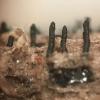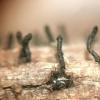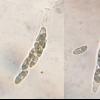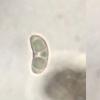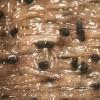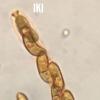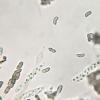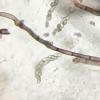
28-02-2026 14:43
A new refrence desired :Svanidze, T.V. (1984) Novy

01-03-2026 18:02
 Francois Guay
Francois Guay
I found this mystery Helotiales on an incubated le

01-03-2026 14:10
 Antonio Couceiro
Antonio Couceiro
Hola, me gustaria conocer opiniones sobre este tem

01-03-2026 18:46
 Robin Isaksson
Robin Isaksson
Hi! This species i se from time to time in the

01-03-2026 08:55
 Michel Hairaud
Michel Hairaud
Bonjour , Je souhaiterais recevoir cet article :�

01-03-2026 15:31
 Csaba Németh
Csaba Németh
Hello!I found these apothecia on Homalothecium lue

01-03-2026 17:51
 Bruno Coué
Bruno Coué
Bonjour,sur vieilles crottes de sanglier en chambr
Immersed long-necked pyrenomycete - Ceratostomella (?)
Ethan Crenson,
06-11-2018 08:59
In New York City, on wet well-rotted wood. A long-necked black pyrenomycete, with perithecia fully immersed in the wood. Exposed portions of the beaks are shorter than 1mm. Somewhat sulcate. Asci very short stipitate, spore portion 33-43 (-46) by 6-7 (-10)µm. 37-50 (-60)µm in total length. Apical apparatus IKI- refractive ring. Spores light brown in asci when mature with 2 to 3 guttules 7-9.5 by 3-4µm. Hairs mostly unbranched, brown, septate, about 5µm wide. This seemed similar to brown spored sp. in the genus Ceratostomella (s.l.) but I am uncertain. C. rostrata seems to differ in spore size. Any help would be appreciated.
Thanks!
Eduard Osieck,
07-11-2018 11:06
Re : Immersed long-necked pyrenomycete - Ceratostomella (?)
I would suggest to check Réblová’s 2006 paper on Cerastomella and related species. For instance, species of the genus Xylomelasma have brown spores and a sulcated neck. A later paper by the same author includes a key to more long-necked species.
Good luck, Eduard
Good luck, Eduard


